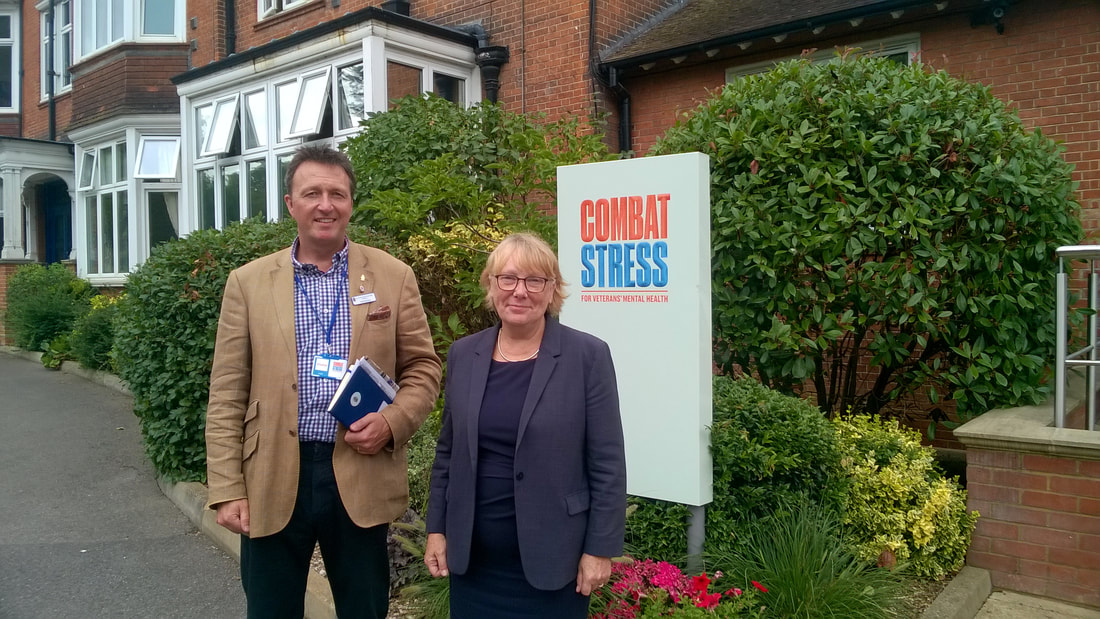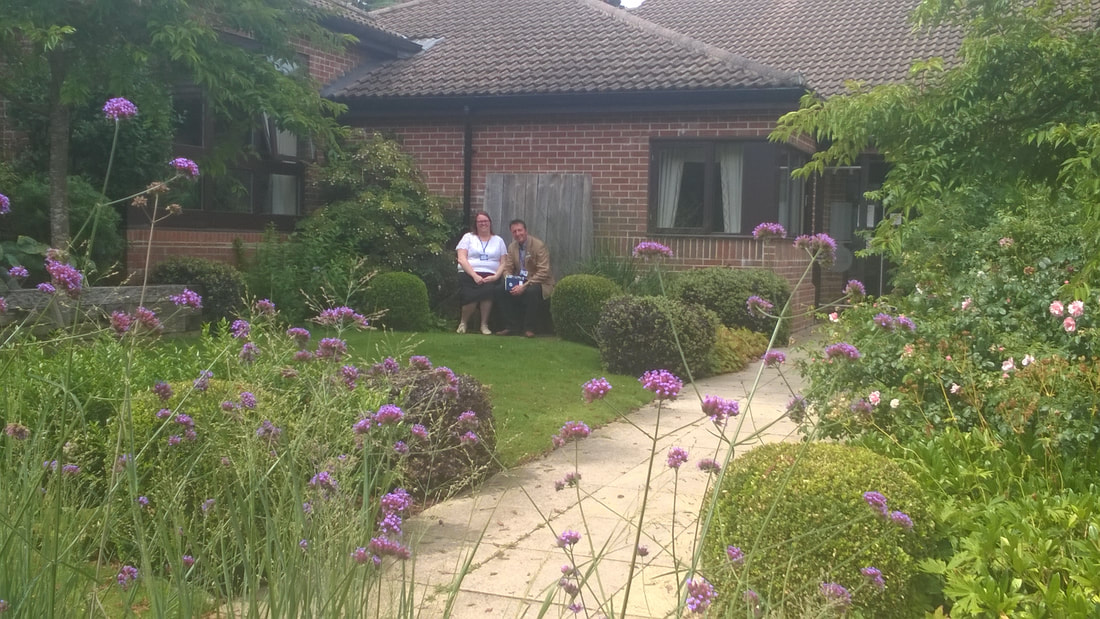Combat Stress |
Combat Stress have a big responsibility for veteran care and are well funded (c.£18M pa) each year. See their website. We as an Association are dealing with various veteran mental health (MH) issues - a huge challenge as there is a big stigma and reluctance to speak up about it. That will get better but we are lobbying for a change to the rule on 'no admission if you are a risk of self harm' as that blocks most of our men who are in distress by the time they reach out of course. We also felt the gate in and other aspects were not welcoming to veterans in distress from combat arms.
Chairman PWRRA says, "Combat Stress seems slightly off beam to what is needed and I shall lobby ministers and them accordingly now. The most acute MH need is veterans post combat not post ops for the wider armed forces - Combat Stress seem well set up medically but there are other aspects that block or even deflect our cases away - that concerns me. Bottom line is we look after ourselves best and so we must reach out to mates who go silent and if we need help ourselves just buzz a fellow comrade for help - just as we used to in the sangers all those years ago."
PWRR Association is always are there for our fellow Tigers. The UK national MH expertise is growing in NHS after much lobbying by us. It is our part as veterans is to treat MH as any other normal injury - like a knee. In the future we must relax and feel open about the subject. You see the medics, it gets treated and you can crack on... Plenty have done and will tell you so. See the Happy Tiger page for more.
Chairman PWRRA says, "Combat Stress seems slightly off beam to what is needed and I shall lobby ministers and them accordingly now. The most acute MH need is veterans post combat not post ops for the wider armed forces - Combat Stress seem well set up medically but there are other aspects that block or even deflect our cases away - that concerns me. Bottom line is we look after ourselves best and so we must reach out to mates who go silent and if we need help ourselves just buzz a fellow comrade for help - just as we used to in the sangers all those years ago."
PWRR Association is always are there for our fellow Tigers. The UK national MH expertise is growing in NHS after much lobbying by us. It is our part as veterans is to treat MH as any other normal injury - like a knee. In the future we must relax and feel open about the subject. You see the medics, it gets treated and you can crack on... Plenty have done and will tell you so. See the Happy Tiger page for more.
Chairman's Visit Report
Diana White, our Asst Regt Sec (Welfare) from RHQ, and I visited Combat Stress in late July 2018 to see what they can do to help our veterans in need. We had many questions from you all and they were answered here for the Tigers by the CEO and her team:
- Is my call confidential? Yes it is (as is our own RHQ PWRR welfare set up)
- Why are there 2 helplines? One is for serving one for veterans but they come to the same place so it's ok.
- Can overseas Tigers get help? Yes there is a plan to get online/video referrals for Tigers overseas from late 2018.
- Why have some lads not been admitted as 'too risky'? Combat Stress is a residential treatment centre; a hospital is where severe cases will go. [We are lobbying for this to be more clear as most of our men are at risk due to the often severe nature of our post ops MH issues.]
- Can you get travel costs paid? Not their role they say but if you are really struggling ask RHQ Welfare for travel support.
- Why can families not refer guys? It must be the individual by UK rules but call RHQ and the Association can help encourage attendance/care.
- Why does it take so long to get an appointment? Like any healthcare there is a waiting list sadly; PWRR are able to support you whilst waiting via a new scheme where we support the family and the veteran. Contact us.
- Is it for serving or veterans? Mostly veterans as serving Tigers should use military med chain but the helpline can advise you and families in confidence if serving. [Chairman notes: Big advice is to just call them as it is 24/7...so much better after a call, everyone who did that said to me it helped.]
- What Courses are there? You can get referred onto the main 6 week course (which is long but popular) as well as week long anger management and others. They help steer you to the right treatment, amongst soldiers, with medics who really 'get who you are and what you have been through'.



